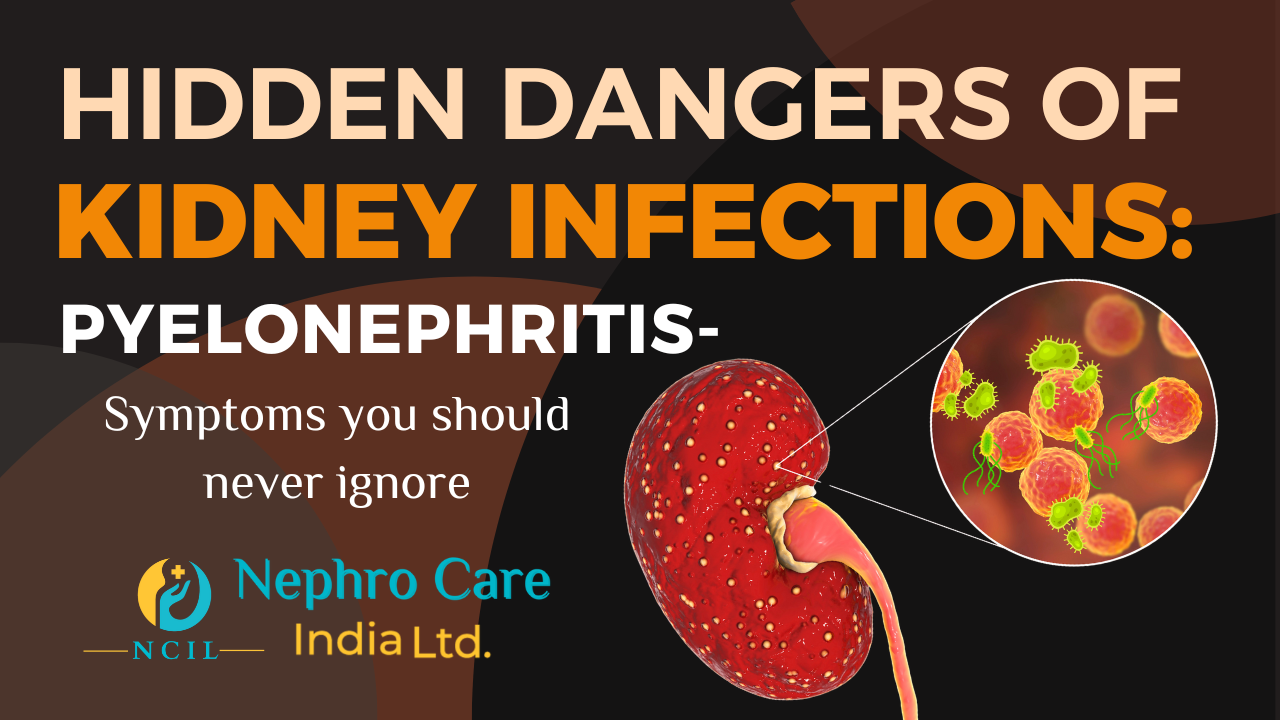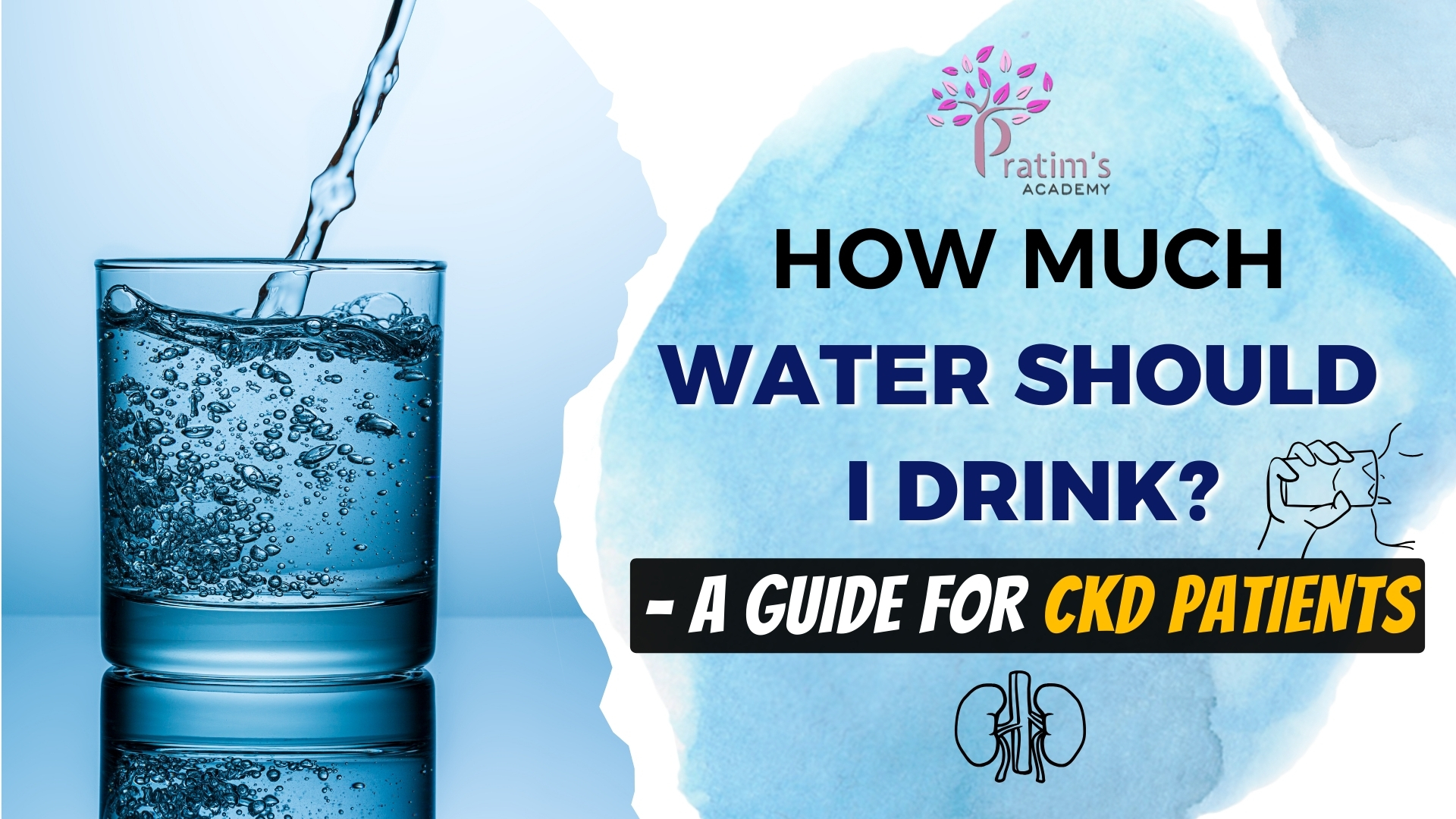
- 362
- 0
Hidden Dangers of Kidney Infections: Pyelonephritis
What is Pyelonephritis?

Pyelo means ‘pelvis’, and –neph refers to the ‘kidney’. So, it is the renal pelvis, a funnel-like structure of the kidney that drains urine into the ureter, and –itis means ‘inflammation’. Thus, pyelonephritis is a rapid kidney inflammation often caused by bacterial infection.
Symptoms of Pyelonephritis
Acute pyelonephritis will classically present as a triad of fever, flank pain, and nausea or vomiting, but not all symptoms need to be present. In patients without nausea or vomiting, anorexia is common.
Symptoms may vary but often include:

- Severe back or side pain
- Fever and chills
- Frequent and urgent urination
- Painful urination
- Nausea and vomiting
- Fatigue
Causes of Pyelonephritis
The primary cause is a bacterial infection, most commonly caused by E. coli, Klebsiella pneumoniae is the second most common causative organism, followed by other enterobacteria. Antimicrobial resistance (AMR) can increase the length of hospital stay and medical costs for patients with acute pyelonephritis. Other factors that can increase your risk include:

- Weakened immune system
- Kidney stones
- Urinary tract abnormalities
- Catheterization
- Pregnancy
- Diabetes
Diagnosis and Evaluation
The following tests are generally performed:
- Urinalysis: To check for bacteria, blood, or other signs of infection. Pyuria is the most common finding in patients with acute pyelonephritis.
- Urine culture: To identify the specific type of bacteria causing the infection.
- Blood tests: To check for signs of infection and kidney damage.
- Imaging tests: Such as ultrasound or CT scan to visualize the kidneys and urinary tract. Usually not required for the diagnosis of uncomplicated acute pyelonephritis but should be considered for patients considered high-risk.
Treatment
Treatment for pyelonephritis typically involves antibiotics to eliminate the infection. In severe cases, hospitalization may be necessary for intravenous antibiotics and close monitoring.
Preventing Pyelonephritis
To reduce the risk of pyelonephritis, these preventive measures are considered:
- Drink plenty of water: This helps flush bacteria out of the urinary tract.
- Wipe front to back: This can help prevent bacteria from the anal area from entering the urethra.
- Avoid irritants: Limit caffeine and alcohol, which can irritate the bladder.
- Empty the bladder fully: Urine should not be hold for too long.
- Practice good hygiene: Genital area should be regularly washed with mild soap and water.
If you experience symptoms of pyelonephritis, it’s important to seek medical attention promptly. Early diagnosis and treatment can help prevent serious complications.
For further advice or assistance, please feel free to contact us
Key facts to keep in mind
- Acute pyelonephritis typically presents with fever, flank pain, and nausea or vomiting, though symptoms may vary.
- Diagnosis is often clinical, but imaging may be considered in high-risk cases or when kidney stones are suspected.
- Ultrasound can help detect certain kidney infections, but a negative result does not completely rule out the condition.
- Prior to initiating antibiotic therapy, it is imperative to obtain urine cultures to identify the causative pathogen and guide appropriate antimicrobial selection.
- Patients with pyelonephritis who are older adults, male, have impaired kidney function, or are experiencing sepsis or disseminated intravascular coagulation are at increased risk of severe complications and mortality.
References
- Belyayeva M, Leslie SW, Jeong JM. Acute Pyelonephritis. [Updated 2024 Feb 28]. In: StatPearls [Internet]. Treasure Island (FL): StatPearls Publishing; 2024 Jan-. Available from: https://www.ncbi.nlm.nih.gov/sites/books/NBK519537/
- Pianucci, K., Cipriano, F., & Chung, E. (2024). Review of Urinary Tract Infections and Pyelonephritis. Pediatric Annals, 53(6), e217-e222.
- Kudratova, Z. E., Utayeva, N. B., Zulfiqarova, M. Y., Do’stmurodova, X. M., & Jonqobilova, H. U. (2024). Modern methods of laboratory diagnostics of pyelonephritis. Web of Medicine: Journal of Medicine, Practice and Nursing, 2(1), 38-40.
Comment
Check Your EGFR
***We Promise, no spam!






